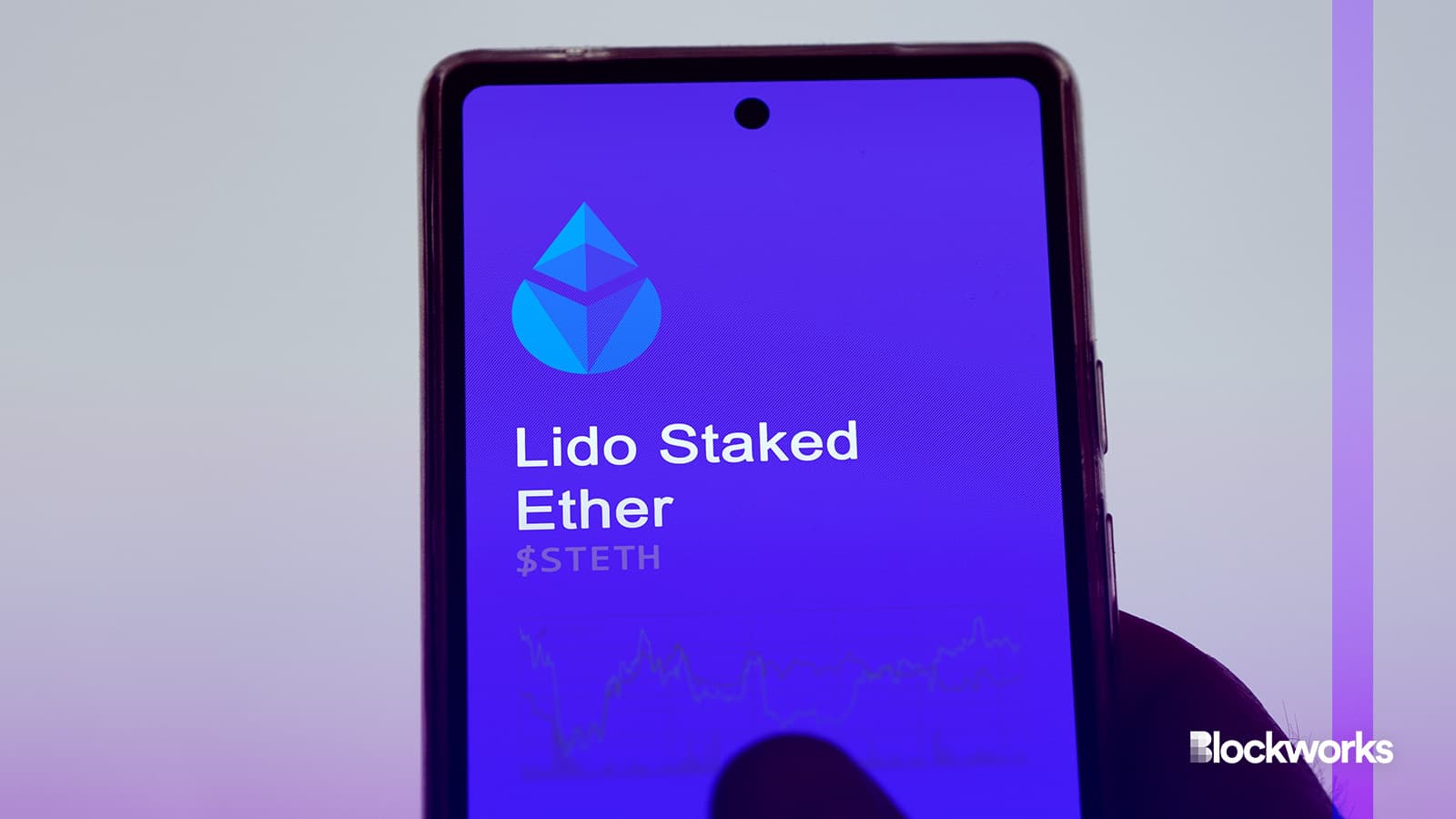Did Lido fly too close to the sun? Inside the centralization debate
Some say Lido’s 31% share of Ethereum liquid staking is troublesome, while a Lido contributor insists it’s ecosystem-aligned

Maurice NORBERT/Shutterstock modified by Blockworks
Lido, the largest liquid staking service provider on Ethereum, is approaching 33% market dominance. This state of affairs has raised concerns about centralization and the protocol being a threat to Ethereum’s security.
At the time of writing, Lido’s staking market share sits at 31.76%. This means that of all the staked ether on Ethereum, almost one-third of it is staked with Lido.
Danny Ryan, an Ethereum Foundation researcher, noted in a 2022 blog post that if a liquid staking derivative (LSD) exceeds the 33% threshold, it has the theoretical capability to manipulate block space, potentially creating an economic monopoly.
This sentiment is shared by the Ethereum Foundation’s Mike Neuder, who identified in a blog post three possible attack vectors on the network: holders of Lido’s stETH product, node operators who run validators for the network, and Lido’s DAO.
Of the three, Neuder said the DAO presents the greatest risk, writing that the “soft power” held by DAO members would allow them undue influence over the protocol.
In a series of interviews, Blockworks spoke with those who’ve raised the alarm that Lido’s dominance may be a pernicious force, as well as members of the Lido development team who argue that the threats to Ethereum’s economic security are overstated.
Read more: Lido Finance drops Solana staking after DAO decision
Why Lido might present cause for concern
Lido DAO’s largest token holders include several funds. Paradigm holds 7% of the total supply of LDO, Lido’s governance token, making it the second-biggest whale, according to a dashboard from Arkham Intelligence. FalconX and Dragonfly Capital are also among the top holders of LDO.
Ian Unsworth, contributor to the liquid staking firm Stride, said the funds holding Lido (LDO) tokens are unlikely to liquidate their positions or maliciously attack the DAO. Still, investment funds have to return value to clients, and value creation could, someday, theoretically conflict with the principles of Ethereum.
“At the end of the day, you should probably assume everyone is a profit maxi,” Unsworth said. “People aren’t going to [govern the DAO] because they like the ethos.”
If profit maximization means passing proposals meant to degrade Ethereum for personal gain, the DAO is not equipped to stop it, according to Nixo, the pseudonymous executive director of EthStaker.
DAO members typically delegate votes to larger holders, meaning proposals can pass without much attention. This could lead to under-the-radar misdeeds, Nixo said.
“It could be Apple knocking on the door and saying, ‘Hey, we would really like to push this [proposal] through in some sort of clandestine way,’” Nixo said, adding that nefarious DAO actors could also punish node operators who act against their wishes.
Notably, the damage Lido’s ability to censor transactions or attack Ethereum grows at 50% and 66% of staked validator share, according to Ryan’s blog post. Nixo said hitting 33% dominance would signal to potential bad actors that higher thresholds are possible without excessive community pushback.
Even if Lido’s DAO is composed of model Ethereans, growing dominance from the liquid staking provider threatens one of the network’s chief value propositions — its censorship resistance.
“[Lido dominance] erodes the credible neutrality of Ethereum, which in turn devalues Ethereum itself,” Kevin Weaver, a backend engineer at Metropolis, said.
Lido’s response to centralization concerns
Kasper Rasmussen, a Lido Community Contributor, told Blockworks that Lido itself is an intermediary layer that facilitates interaction between Ethereum users and transparent, well-known Node Operators (NOs).
“This process is underpinned by a network of 37 legitimate and autonomous NOs. These NOs are not only geographically dispersed, but each of them individually holds less than 1.5% of the total staked assets,” Rasmussen said.
Broader community governance will be achieved through the development of dual governance, Rasmussen said. Dual governance means LDO holders are not the only ones with governing power — Lido staked ether (stETH) holders can apply veto to votes if they choose to.
This means it’s possible for stETH holders to engage in protocol governance without holding LDO tokens.
“This ensures the protocol remains transparent, accountable and representative of the entire user base,” Rasmussen said.
The Lido team is also working to expand the Lido Protocol’s validator set. In September, it onboarded seven new node operators, Rasmussen noted.
“This diversification serves as a protective measure against any single entity gaining control,” he said.
Lido as an ‘ideal’ villain for Ethereum?
Enshrining liquid staking decentralization in the protocol’s code has generated buzz in Ethereum circles. Enshrinement could theoretically implement protocol updates that would make it impossible for liquid staking to become overly centralized.
Lido’s DAO also considered, and ultimately rejected, a proposal that would have self-limited its staking dominance.
Whether the solution to Lido dominance is reached through social pressure or by code updates, Lido says it is taking steps to stay aligned with Ethereum’s ethos. For this reason, Nixo said Lido is an “ideal actor to be in the villain position” on Ethereum.
Read more: Ethereum is ‘much more centralized than folks realize’: Blocknative’s Matt Cutler
“This is highlighting a problem that the Ethereum protocol has — it’s not a problem of an evil actor coming in,” Nixo said. “So in a way this is good that this is happening…the fact that ideas like that are coming to the surface in light of this debate from all sorts of sources is exactly what this social layer is meant to elicit.”
Updated Oct. 20, 2023 at 11:30 am ET: A previous version of this article attributed information to “the company” instead of a “Lido contributor.”
Updated Oct. 20, 2023 at 11:12 am ET: Clarified for additional context.
Get the news in your inbox. Explore Blockworks newsletters:
- The Breakdown: Decoding crypto and the markets. Daily.
- 0xResearch: Alpha in your inbox. Think like an analyst.






